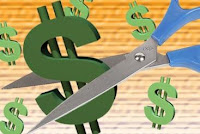It is important for the intelligent investor to "buy what they know." Or only stick to owning businesses for which they would be able to notice opportunities, changes, or threats in their respective sectors. When competing with millions of other people around the world for the buying and selling of stocks, one must possess a reasonable expectation of spotting competitive, strategic, or systemic threats to the businesses that they own. It is, therefore, important to diversify, but only within reason.
For instance, many investors have an appetite and desire to own technology and renewable energy stocks. On the whole, the rapid and inherent nature of change in the technology sector makes threats and difficulties very difficult to notice with regards to many technology stocks on the market today. Many great technology names have come and gone over the years, and few have managed to withstand the constant pressure to innovate and re-invest themselves.
IBM (NYSE: IBM) has done so for decades, and continues to do so with much success, but many others are in constant fear of being overtaken by the next great technological fad or change. Even the great Microsoft (Nasdaq: MSFT) is beginning to come under siege by Google (NYSE: Goog), Apple (Nasdaq: AAPL) and others... especially in the cloud computing arena, which might be the next great shift in the technology space.
Other individuals might be very astute at spotting key developments in the fashion or retail space. Personally, many clothing stocks such as Aeropostale (NYSE: ARO), American Eagle (NYSE: AEO), Gap (NYSE: GPS) etc. carry a lot of uncertainty as I may be unaware of important trends taking place in the fashion space. On the other hand, trends in the energy, banking, or consumer staples arena are much easier for me to wrap my head around. A knowledge of current oil inventories and reserves for Suncor (TSE: SU), in combination with a prediction of energy prices over the next year, could give me a reasonable valuation for the company, but a variety of key factors concerning current clothing trends would leave me at a disadvantage compared to other investors in this sector of the economy. In the
Art of War, Sun Tsu said to evade your enemy if unequally matched. In investing, the same is true.
Warren Buffet, the Oracle of Omaha and guru for many value investors, always said to steer clear of something that you do not understand. It is nearly impossible to tell if a company has a "durable competitive advantage," or good defence against competition, if you do not understand how its business operates, who its primary competitors are, and what threats or changes are on the horizon. Without this knowledge, the intelligent investor is exposing themselves to far too much risk. Investing should never be a guessing game, but a calculated and well played match between you and other investors to acquire businesses for a reasonable and well rationalized price.
If you cannot assign a true dollar value to the company, independent of the current stock price, than you should not own it. You would not buy a rental property without first understanding the neighbourhood it is in and how much rent it generates, so do not buy a stock without first knowing how it actually makes its money, who its customers are, and what the competition is like.
If most industries are unfamiliar to you, a quality, low-fee mutual fund or exchange traded fund are probably best.
Happy Investing : )
 MoneySense Magazine has announced its annual ranking of the best places to live in Canada. It uses a number of interesting metrics to rank the cities according to what it believes as key factors that would influence someone's municipal satisfaction. So, what are they and where is the best place to live?
MoneySense Magazine has announced its annual ranking of the best places to live in Canada. It uses a number of interesting metrics to rank the cities according to what it believes as key factors that would influence someone's municipal satisfaction. So, what are they and where is the best place to live?


